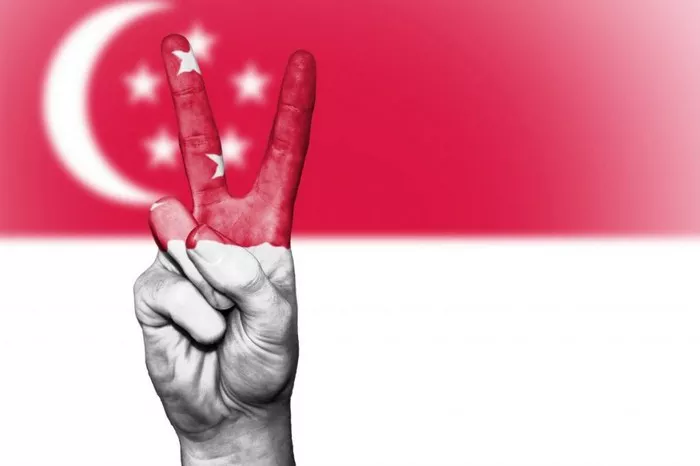Gaining Permanent Residency (PR) in Singapore can be a significant step for many individuals looking to settle in this vibrant city-state. However, the ease of obtaining PR depends on various factors. This article provides a detailed look at the PR application process, eligibility criteria, challenges, and tips for success.
Understanding Permanent Residency in Singapore
What is Permanent Residency?
Permanent Residency in Singapore allows foreign nationals to reside in the country indefinitely. PR holders enjoy numerous benefits, including the ability to live, work, and study in Singapore without restrictions. They also have access to certain social benefits, such as healthcare services and the ability to purchase property.
Types of Permanent Residency
There are several pathways to obtain PR in Singapore:
Professional, Technical Personnel and Skilled Workers Scheme (PTS)
This is the most common route for expatriates working in Singapore. Applicants must hold an Employment Pass or S Pass and meet specific criteria.
Global Investor Program (GIP)
This scheme is designed for individuals who want to invest in a business or start a new business in Singapore.
Foreign Students
International students who have studied at local educational institutions can apply for PR under this category.
Family Ties
Spouses and children of Singapore citizens or PR holders can apply for PR through this route.
Eligibility Criteria for PR Application
General Requirements
To be eligible for PR in Singapore, applicants must typically fulfill the following criteria:
Employment Status
Applicants should have a valid Employment Pass or S Pass.
Educational Qualifications
Higher educational qualifications often enhance an applicant’s chances. Degrees from reputable institutions are looked upon favorably.
Work Experience
Relevant work experience in a skilled occupation can strengthen the application.
Economic Contributions
Applicants must demonstrate their economic contributions to Singapore, including tax payments and employment stability.
Specific Requirements for Different Categories
Each category has specific requirements. For instance:
PTS Scheme: Applicants must demonstrate a stable income, relevant work experience, and qualifications.
GIP: Applicants must make a substantial investment in a business or venture in Singapore.
Family Ties: The relationship with the Singapore citizen or PR must be verified through documentation.
The Application Process
Step-by-Step Guide to Applying for PR
Gather Necessary Documents
Collect all relevant documents, including employment records, educational qualifications, and financial statements.
Submit Online Application
Applications can be submitted through the Immigration and Checkpoints Authority (ICA) website. It is essential to complete the application accurately.
Pay the Application Fee
A non-refundable fee is required when submitting the application.
Await the Outcome
Processing times can vary, typically taking between four to six months. Applicants will be notified of the outcome via email or postal mail.
Important Documents Required
Some of the key documents needed for the application include:
Copy of passport and identification card
Employment Pass or S Pass
Educational certificates
Tax statements and payslips
Marriage certificate (if applicable)
Birth certificates of children (if applicable)
Challenges in Obtaining PR
Common Obstacles
While many aspire to secure PR in Singapore, several challenges may arise during the application process:
High Competition
Singapore’s PR application process is highly competitive. Many qualified individuals apply, making it difficult for others to secure approval.
Strict Eligibility Criteria
The eligibility criteria can be stringent, with emphasis on educational qualifications and employment history.
Economic Conditions
Economic downturns can impact the approval rates for PR applications, as the government prioritizes local employment.
Rejection of PR Applications
Rejections are common for various reasons:
Incomplete or inaccurate documentation
Insufficient economic contributions
Failure to meet eligibility requirements
Handling Rejections
If your PR application is rejected, you have the option to reapply. Consider the following steps:
Review the Rejection Letter
Understand the reasons for the rejection and address them in your next application.
Seek Professional Guidance
Consulting an immigration lawyer can provide insights and improve your chances in subsequent applications.
Strengthen Your Profile
Use the time before reapplying to enhance your profile, whether through further education, work experience, or community involvement.
see also: Is it Easy to Get a Work Visa in Singapore?
Tips for a Successful PR Application
Enhance Your Profile
Education and Skills
Pursue further education or training that is relevant to Singapore’s job market.
Work Experience
Gain experience in sectors that are in demand in Singapore, such as technology, finance, and healthcare.
Networking
Build professional connections in Singapore to enhance job prospects and demonstrate integration into society.
Maintain Good Conduct
Compliance with Laws
Ensure compliance with all local laws and regulations, as any legal issues may negatively impact your application.
Tax Contributions
Keep your tax payments up to date. Demonstrating your economic contributions is essential.
Community Involvement
Volunteer Work
Engaging in community service can reflect positively on your application and showcase your commitment to Singapore.
Social Integration
Actively participating in local events and activities can demonstrate your integration into Singaporean society.
Conclusion
In conclusion, obtaining Permanent Residency in Singapore is not necessarily easy but is achievable with the right approach. Understanding the eligibility criteria, preparing a strong application, and enhancing your profile can significantly improve your chances. The process can be competitive and challenging, but with persistence and dedication, many foreign nationals successfully secure their PR status. If you are considering applying for PR, ensure that you have all the necessary documentation, adhere to the guidelines, and seek professional advice if needed. This proactive approach can lead to a rewarding experience in Singapore.
Related topics:
- How Long to Process Work Permit in Singapore?
- Do Ugandans Need a Visa to Singapore?
- Do I Need a Visa to Enter Singapore from the UK?


